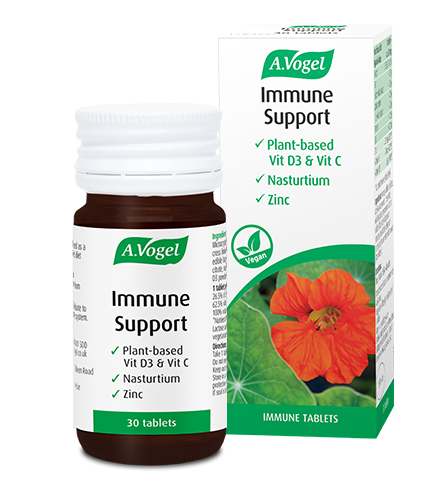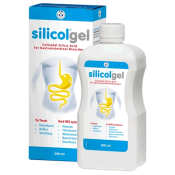Can vitamin D help manage the symptoms of IBS?
There are agreed associations between the occurrence of IBS and people with low vitamin D status. Plus, although the results across the research are somewhat variable, there have been positive outcomes in both observational and randomised control trials, for the effects of vitamin D supplementation on both symptom severity and quality of life scores for those with IBS.
Why is there no cure for IBS?
It's not that there is no cure, there is no 'universal' cure that works for everyone.
See, IBS is a set of symptoms affecting the gut. The symptoms vary greatly across different people and the underlying cause isn’t well understood, which is exactly why it is such a difficult condition to treat! So, as of yet, there is technically no cure.
In some cases of IBS, diarrhoea is one of the main symptoms whereas for others, the opposite is true and their condition is characterised by a sluggish bowel. This is partly the reason why a one size fits all approach isn’t so applicable – the variation in the symptoms and potential causes is huge. However, that's not to say that supplements can't be an important part of the management of this condition.
So, research is constantly on-going and from probiotics to vitamins, it does seems that some supplements could help to manage some of the symptoms, in many cases. As we’ll explore in more depth, this could be because these help to target different underlying areas; from the balance of gut bacteria, to the correct functioning of the immune system. Targeting potential underlying causes, rather than only managing certain symptoms in the short-term, could be the key.
What does the research say?
A pivotal review of 7 separate studies explored the effects that vitamin D supplementation could have on different IBS outcomes. (1)

Interestingly, 4 of the studies included were observational which meant that there was no intervention and vitamin D was not given to the participants. However, this still gives us valuable information as the results showed there could be a relationship between vitamin D deficiency and IBS severity – there seemed to be a trend for a connection between low vitamin D status and an increase in IBS symptoms. (1)
Next, taking this into consideration, a number of randomised control trials were also included. These were intervention trials and involved giving IBS sufferers a daily dose of vitamin D to see how this affected their symptoms. Results from two of the three studies (1) found that supplementation with vitamin D helped to improve both the severity of symptoms and the quality of life scores for participants suffering from IBS. These are two major outcomes and the results of the study certainly look promising.
It has to be said that some recent research has been a little less favourable, but actually, vitamin D status at baseline, is often an important consideration.
What mechanisms could be involved?
Although the research doesn’t go into detail about what mechanisms may be involved in the effects of vitamin D on IBS1, we know from other research that a good dose of vitamin D can bring a whole host of benefits, which may offer some explanation.
Firstly, we know that vitamin D receptors are found all over the body. From bones, to immune cells, to the gut, we are gradually learning more about the impact this important vitamin can have all over. As a result, it’s quite likely that being deficient in vitamin D could have a long list of consequences and this is also particularly relevant when it comes to IBS.
Vitamin D may have a direct effect on the gut, but could interactions elsewhere also have an impact on this condition? Considering we don’t yet fully understand the underlying causes of IBS, this is entirely plausible! Some important areas of interest include the following:
1. Vitamin D affects your gut bacteria
The balance of gut bacteria is thought to be important in cases of IBS, and interestingly, vitamin D levels could have a part to play. Research has shown that a vitamin D deficiency could potentially alter the balance of good bacteria in the gut, and some of the beneficial by-products that these organisms produce. (2)
So, without sufficient levels of bacteria, the internal gut environment could change and this could have effects both locally, but also more widespread around the body!

2. Vitamin D supports your immune system and is anti-inflammatory
Vitamin D is also thought to be an important anti-inflammatory agent in the body and is thought to do this by helping to modulate the effects of certain immune cells. Immune cells such as cytokines are responsible for detecting pathogens and putting the immune system on high alert in a bid to protect against any future invasions.
In conditions such as IBS, although the structure and functions of the gut remain unchanged, it is up for debate as to whether the immune system is involved and whether a type of low-grade inflammation is also underlying.
We know that up to 80% of our immune cells can be found in the gut so this idea is very credible. In this way, it is possible some vitamin D could be helpful.
3. Vitamin D supports mood
We know already that there are links between our gut and brain - our gut has its very own nervous system called the enteric nervous system which connects them. This is why in conditions affecting the gut such as IBS, psychological factors are often part of the puzzle.
But where does vitamin D come into all of this? We know that vitamin D may also have a part to play in conditions such as seasonal affective disorder (SAD) and depression. (3)
Vitamin D is unique in that it acts like a hormone in the body with the ability to affect neurotransmitters. One of these is serotonin, which has an important role in supporting our mood but is also found in abundance in the gut! Another link, and another reason why vitamin D could play a role in IBS.
What’s the advice on vitamin D?
Despite these promising results, we still need to approach this area with caution and some further research is required before we jump to any conclusions.
However, generally, we know that the vitamin D status of people in the UK is very poor. This is especially true in more northern areas such as in Scotland where sunlight is more limited throughout the year and for people with darker skin who have a harder job manufacturing vitamin D in the body. This means that taking a vitamin D supplement may be helpful regardless, and there’s the added bonus that this may also help support your gut.
Therefore, for those who are deficient to start with, the beneficial effects may be even more profound.

Vitamin D is fat soluble and this means we have to be cautious in terms of doses. Our advice still stands – don’t take too much unless under the guidance of your doctor. The current recommended daily amounts stands at 400iU for everyone over the age of 1 year old.
A.Vogel Immune Support Tablets with Vitamin D, Vitamin C and Zinc, 30 tablets
£13.99 (30 tablets) In Stock
Remember, a multidisciplinary approach is often the best approach when it comes to managing the symptoms of IBS. This includes managing a number of diet and lifestyle factors but we know that stress can also have an impact. The balance of gut bacteria may also be important and a range of natural remedies may also be helpful in the management of this condition longer-term.






 Looking to support your immune system? Well, look no further!
Looking to support your immune system? Well, look no further!

